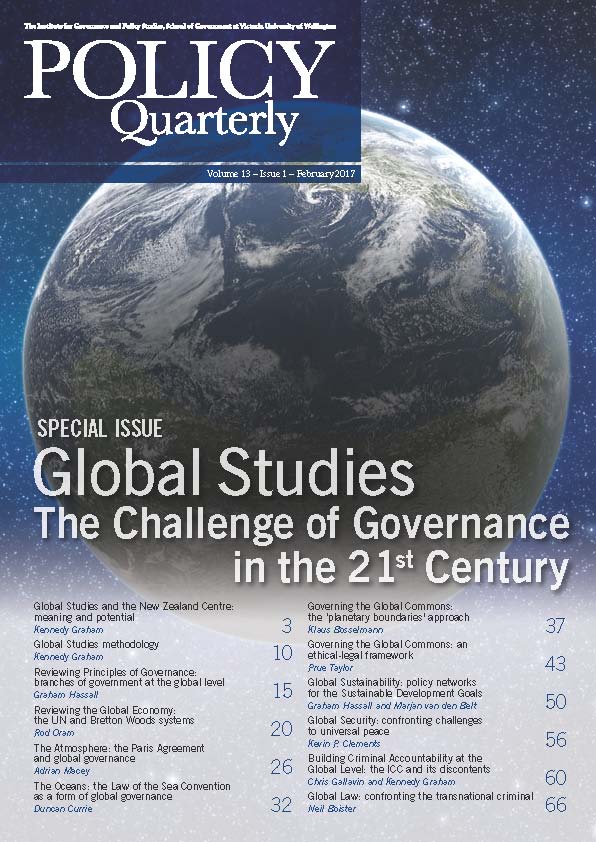The atmosphere, the Paris Agreement and global governance
DOI:
https://doi.org/10.26686/pq.v13i1.4640Keywords:
Paris Agreement on climate change, United Nations Framework Convention on Climate Change (UNFCCC), ‘common but differentiated responsibilities and respective capabilities’ (CBDR), Kyoto Protocol, Copenhagen AccordAbstract
The 2015 Paris Agreement on climate change set a remarkable precedent for speed of entry into force of a global treaty. With the threshold of 55 parties and 55% of greenhouse gas emissions being reached within a year of its adoption, the agreement entered into force before the following Conference of the Parties (COP22) in Marrakech (November 2016). By the end of COP22 there were over a hundred ratifications. This was both a vote of confidence in the agreement and a sign of the strong international commitment to tackle climate change. Less obvious is the fact that the agreement reflects a new model of international governance of climate change, in which the role of the central legal instrument has changed. It is yet to be tested, but these early signs of confidence augur well.
Downloads
Downloads
Published
Issue
Section
License
Permission: In the interest of promoting debate and wider dissemination, the IGPS encourages use of all or part of the articles appearing in PQ, where there is no element of commercial gain. Appropriate acknowledgement of both author and source should be made in all cases. Please direct requests for permission to reprint articles from this publication to Policy-Quarterly@vuw.ac.nz.



